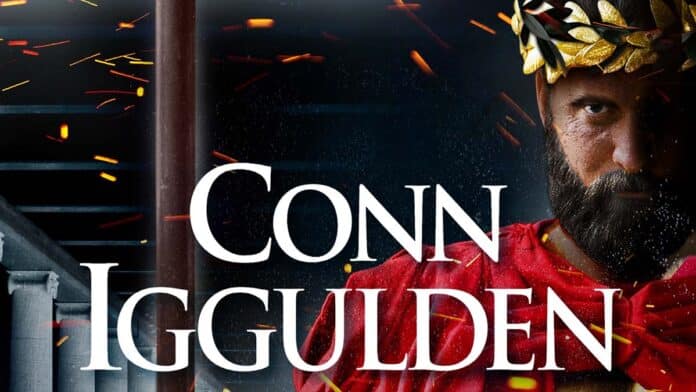Historical fiction author Conn Iggulden returns with ‘Empire’, the closing instalment of his duology that began with last year’s ‘Lion’. It continues the story of the Ancient Greek general and war hero Pericles, picking up from where the previous book left off in around 463 BC.
The life of Pericles is an extraordinary one, and the author’s attempt is to both humanise the great military leader, providing personality to the legend, as well as to explain key events in a compelling way. The political machinations are certainly complex. Opening scenes find Pericles at the trial of his great nemesis, Cimon. Iggulden sketches well the workings of Athenian law in the cradle of Western democracy.
Much of the rest of the book details the growing tensions between Athens and the nearby city state of Sparta (Greece was not a unified country in ancient times). Conflict between the two would erupt as the Peloponnesian War, which would be detailed by the contemporary historian Thucydides (who, enjoyably for scholars of such things, features as a character in the novel). Pericles is depicted as single-minded in some of his efforts to protect Athens. He is dogged in his determination to rebuild the protective city walls in a move certain to aggravate tensions with the Spartans who would inevitably view it as an act of war. Iggulden may even be drawing unfavourable comparisons with contemporary world leaders who suggest extensive wall-building as a silver bullet resolution to problems besetting their societies. The novel details the malign consequences of Pericles’ fortifications, in that a terrible plague breaks out within the confines of the city leading to wide scale illness and death. Be careful what you wish for, indeed.
The main strength of the book is Iggulden’s ability to place his readers within a specific time and place. In describing the stench of death and plague, and the terrors of the battlefield, the author vividly recreates history. In so doing, he always ensures that it maintains the ring of authenticity through extensive research. Some familial relationships are compelling too. Pericles’s at times strained relationship with his sons, who can never quite match his greatness though they follow him into war, are perhaps the most satisfyingly captured interactions in the book.
On the other hand, Pericles’ wife Aspasia makes appearances fleetingly. Perhaps in an effort to redress the balance of such a male-dominated story, Iggulden fleshes out her character and provides her with more things to say and do than the history books have left us. But since Aspasia isn’t involved in any of the aspects of the conflict, her involvement is often surplus to requirements and feels like a distraction from the narrative. Another weakness is that the book feels as if it is building towards an epic confrontation that never actually arrives. Rather, the aftermath is described and the reader is asked to fill in the gaps using his or her imagination.
Classicists will enjoy the inclusion in the text of notable characters from history such as the tragedian Euripides and the historian Thucydides. They serve to remind readers that, despite the background of long-running conflict not only with Sparta but also with Persia, Athens remained a cultural hub and the birthplace of democracy. The small Greek city’s legacy would influence the later Roman Empire, which left its stamp on shaping Western societies thereafter. There are some epochs where you might reasonably wonder how there was such a flowering of the human spirit. The question is gently raised here, but left to the reader to ponder further. The great enemy, the Spartans, are characterised without ever coming fully into focus. Rather, they tend to remain spoken about as a great threat hovering just out of sight. When we meet them, they are as taciturn as you may expect.
Although ‘Empire’ is written in an accessible and engaging style, readers new to Ancient Greek history may find the array of names and peoples and places rather dizzying. There simply isn’t the capacity within a novel to explain it all. Amongst a complex clash of cultures and city states, Iggulden presents an exciting historical adventure. There are few writers as skilful at evoking historical settings, and he proves once again that he can pick a cracking story out of dense academic research. ‘Empire’ didn’t quite keep us as hooked as other recent historical adventures, such as Robert Harris’s ‘Act of Oblivion‘, but we’ll certainly look out for more from Iggulden’s literary canon.
The book is narrated by Tim McInnerny, who clearly has a penchant for historical fiction. Again, we enjoyed his nuanced tone and good diction in presenting the prose, but found some of his characters’ dialogue oddly mechanical. Nevertheless, he brings to life the action sequences with consummate skill, ensuring that the pace quickens to draw you in, without losing any clarity. These are the most memorable moments in the book, and the sections listeners will remember after finishing the final chapter.

Publisher: Penguin Random House UK audio Narrator: Tim McInnerny Publication date: 25th May 2023 Buy Conn Iggulden’s ‘Empire’


